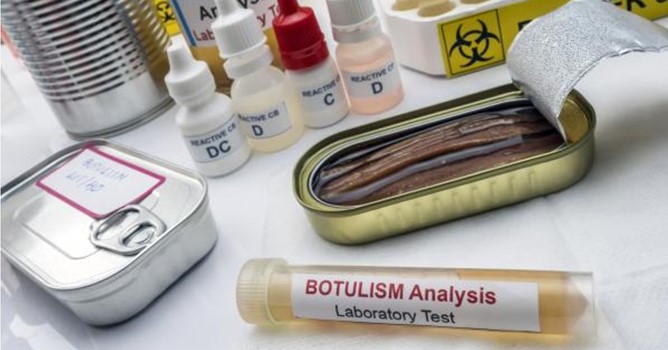The dangers of botulism in canned foods: how to know if they are contaminated
Botulism is a rare but potentially fatal disease that can affect our health by consuming improperly prepared food. Canned foods are particularly prone to contamination and care in their preparation is crucial to avoid serious consequences. We’ll tell you everything you need to know about the dangers of botulism in canned foods and how to detect if they are contaminated. Don’t leave your food safety to chance and read on!
There are several indicators to look out for to check for symptoms of this dangerous food poisoning, such as the presence of bubbles, cloudy water or lack of air in the can.
In addition, when it comes to canned foods, be very careful with those made at home. Although all canned foods are exposed to the risk of harmful bacteria if not well maintained, home-canned foods pose an even greater threat due to the botulism it can cause.
It is essential to bear in mind that if homemade preserves are produced and the proper steps are not followed, they can be very dangerous to health. To avoid harmful side effects such as botulism, it is important that we know the necessary measures from preparation to consumption of such food. In this article you will learn how to identify if a canned food contains this bacterium and how to prevent its appearance.
If there are any specific symptoms that indicate that canned foods have botulism, such as foul odor from the container, presence of white or cloudy spots on the contents, and damaged packaging.
If you want to prevent a food product from becoming contaminated with botulism, there are certain steps that need to be taken. One is proper sealing to keep food free of bacteria, while another is processing the product at appropriate temperatures to kill the bacteria present. Finally, food should be stored properly and packaged in the cold to prevent the spread of bacteria.
For those who do not know, botulism is a disease caused by the ingestion of toxins produced by different types of bacteria such as Clostridium botulinum, which can be contracted by ingesting contaminated food, or through wounds or burns. These toxins can lead to symptoms such as respiratory problems, paralysis and blurred vision.
Canned foods that are inflated and do not have their original normal shape may pose a health problem if they actually contain botulinum toxins. Therefore, it is best to discard any swollen can and not risk ingesting it.
If you find a tin can with a swollen lid, it means that there may be something dangerous inside. To make sure it is not contaminated, you should press the edges of the lid with your thumbs.
If you are opening a can of canned food, wait until you hear the famous “clack” sound they usually make when they lose their vacuum air. If no such noise is produced, it is best to discard it because it may mean that the can is in poor condition.
Also, if you notice that there is a can with signs of rust at the seams, or signs of dents, it may mean that the can sealing is not 100%. This means that certain microorganisms can cause other foods to be burned. For this reason, we recommend that you discard them and throw them away completely.














